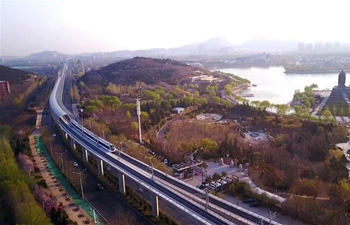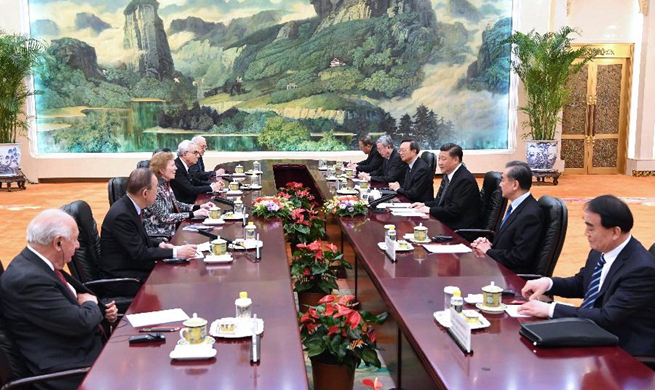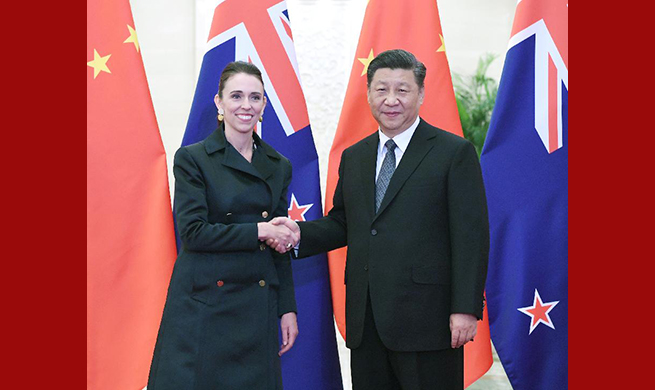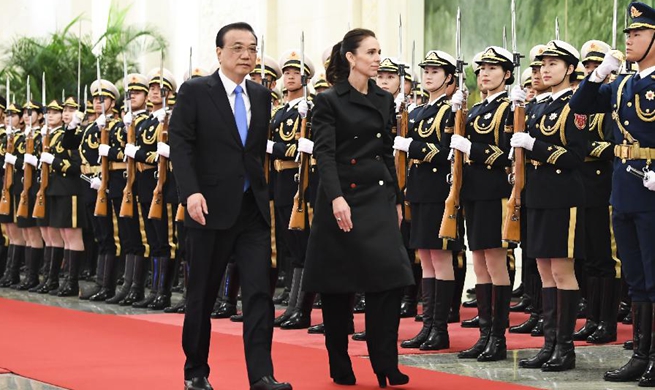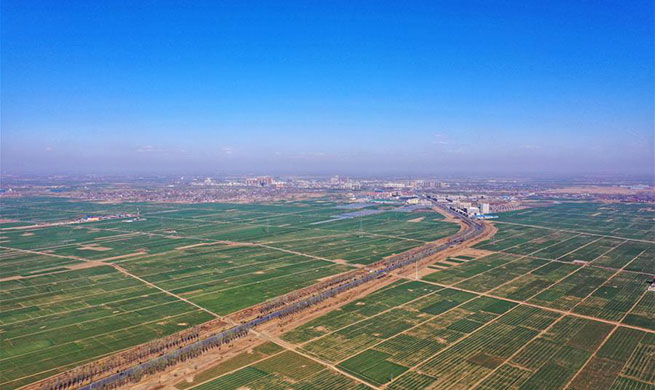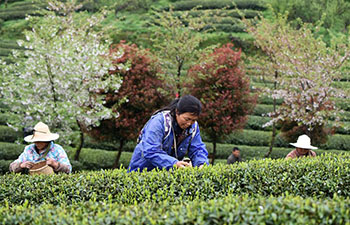UNITED NATIONS, April 1 (Xinhua) -- The United Nations (UN) humanitarian chief on Monday asked for efforts to safeguard humanitarian space by ensuring compliance with international humanitarian law.
"International humanitarian law is designed to minimize human suffering in war, including by safeguarding humanitarian activities. So, garnering greater respect for international humanitarian law is one of the most effective ways to safeguard humanitarian space," Under-Secretary-General for Humanitarian Affairs Mark Lowcock told the Security Council in a debate.
Civilians bear the brunt of conflict as combatants have increasingly resorted to siege and starvation as weapons of war, and as conflict has prevented farmers from reaping their harvests, destroyed vital infrastructure, and disrupted commercial trade, he said.
This year, 139 million people are in acute humanitarian need, most of them because of armed conflict. That is three times the number of a decade ago, said Lowcock. Some 60 percent of people affected by food crises are living in conflict-affected countries, he added.
Lowcock also saw the deliberate and organized use of rape as a weapon of war. One in five displaced women asked say they have experienced sexual violence. Children are being recruited into armed groups, forced into early marriage, used as suicide bombers, and barred from education as their schools are attacked or taken over, he said.
In towns and cities, belligerents use explosive weapons designed for open battlefields, resulting in mass civilian casualties, enormous destruction of infrastructure, and long-term disruption of essential services, he said.
Today's conflicts are also marked by more direct attacks against humanitarian workers, medical workers and their facilities.
There were 317 attacks against aid workers in 2018, resulting in 113 deaths. The World Health Organization reported 388 attacks against health personnel or health facilities in 2018, resulting in more than 300 deaths and 400 injuries, he said.
Combatants deliberately hinder humanitarian operations, slowing them down, driving up costs and blocking aid from reaching people in need. Violence against humanitarian workers, including killing and maiming, kidnapping and abductions, likewise hinders humanitarian operations, he said.
With the Geneva Conventions adopted 70 years ago and relevant UN Security Council resolutions, there is a strong legal framework to safeguard humanitarian activity in conflict. Today's problem is that fighting parties and their backers do not always follow it, said Lowcock.
He asked to promote policies and practices to strengthen adherence to international humanitarian law, and to broaden and deepen the understanding and acceptance of existing rules.
Experience has shown that fighting parties often have an incomplete understanding of international humanitarian law. Providing training for armed forces and members of non-state armed groups on how to respect humanitarian law can help, he said.
Lowcock called for enabling humanitarian and medical activities. All parties should adopt clear and simplified procedures to facilitate humanitarian access. They should establish civil-military coordination platforms or humanitarian notification systems to facilitate parties' respect for humanitarian operations.
States and the Security Council could promote the universalization of international humanitarian law and human rights treaties, he said.
The right kinds of incentives and penalties can boost compliance, he said. For example, sanctions imposed by the Security Council can be a powerful tool to promote compliance of international humanitarian law. States can exert their diplomatic, political and economic influence over parties to conflict to strengthen their compliance.
He also stressed the importance of accountability. States need to do much better in holding individuals to account when they commit serious violations of international humanitarian law, and should strengthen their capacity to carry out impartial, independent investigations into allegations of war crimes and to prosecute suspects.





